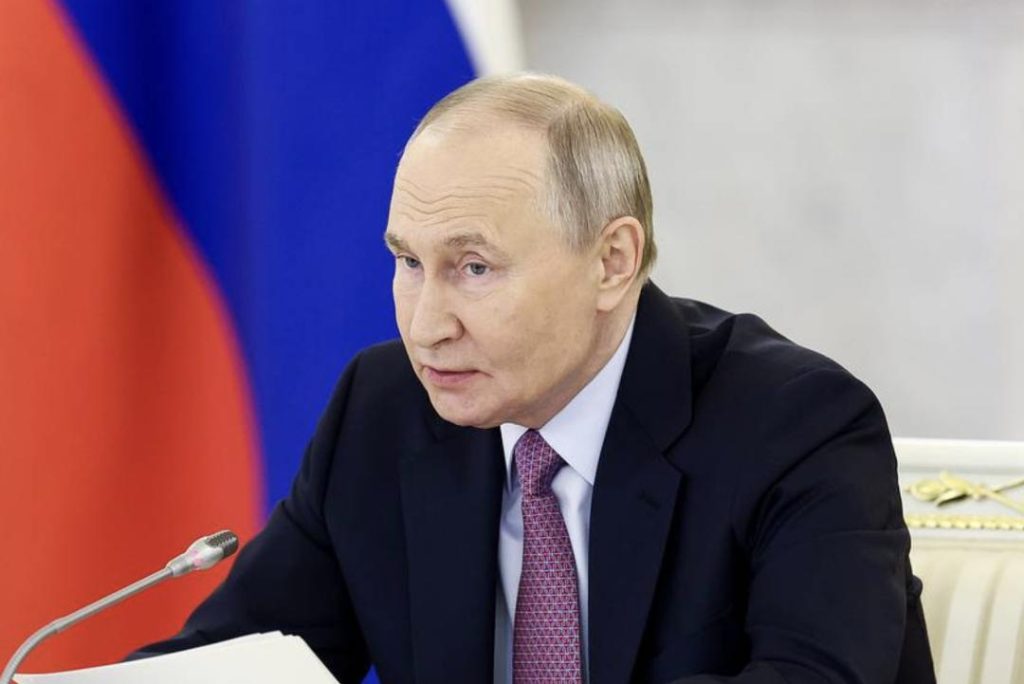
Russia & US in talks on cooperation in Arctic, Alaska: Putin
In recent years, the Arctic region has become an increasingly important area of focus for both Russia and the United States. With the melting of sea ice and the discovery of vast natural resources, the Arctic has become a hotspot for economic and strategic interests. In a recent statement, Russian President Vladimir Putin revealed that Russia and the US are in talks to cooperate on projects in Russia’s Arctic zone and the US state of Alaska.
According to Putin, Russia’s unique technological capabilities make it an attractive partner for international cooperation in the Arctic. “The technologies that we possess, today no one but us possesses,” Putin said. “This is of interest to our partners, including those from the US.”
One potential area of cooperation is in the development of liquefied natural gas (LNG) projects. Russia’s largest LNG producer, Novatek, is already operating in the Arctic and has plans to expand its operations in the region. The company has signed several agreements with international partners, including the US-based company, ConocoPhillips.
The US is also heavily invested in the development of LNG projects in Alaska. The state has significant reserves of natural gas, and the development of LNG projects could provide a new source of revenue for the state. In recent years, several major LNG projects have been approved in Alaska, including the Alaska LNG Project, which is expected to be one of the largest LNG projects in the world.
A cooperation agreement between Russia and the US could potentially lead to the development of joint LNG projects in the Arctic and Alaska. Such projects could provide significant economic benefits to both countries, as well as help to reduce greenhouse gas emissions by providing a cleaner-burning alternative to traditional fossil fuels.
In addition to LNG projects, there are also several other areas where Russia and the US could cooperate in the Arctic. One potential area is in the development of renewable energy projects. The Arctic region is home to significant wind and solar resources, and the development of renewable energy projects could help to reduce the region’s reliance on fossil fuels.
Another area of potential cooperation is in the development of infrastructure projects. The Arctic region is home to several major ports, including the Russian port of Murmansk and the US port of Valdez. The development of infrastructure projects, such as new ports and transportation corridors, could help to facilitate trade and commerce in the region.
The potential benefits of a cooperation agreement between Russia and the US are significant. For Russia, such an agreement could provide access to new markets and technologies, as well as help to reduce its dependence on fossil fuels. For the US, such an agreement could provide access to new resources and markets, as well as help to reduce its reliance on foreign oil.
However, there are also several challenges that must be addressed in order to make a cooperation agreement a reality. One potential challenge is the issue of sovereignty. The Arctic region is home to several disputed territories, including the North Pole and the surrounding waters. Russia and the US have different views on the ownership of these territories, and any cooperation agreement must take into account these differences.
Another challenge is the issue of environmental protection. The Arctic region is home to several sensitive ecosystems, including the Arctic tundra and the polar bears that inhabit it. Any cooperation agreement must take into account the need to protect these ecosystems and prevent environmental damage.
In conclusion, the potential for cooperation between Russia and the US in the Arctic region is significant. The development of joint LNG projects, renewable energy projects, and infrastructure projects could provide significant economic benefits to both countries, as well as help to reduce greenhouse gas emissions. However, there are also several challenges that must be addressed in order to make a cooperation agreement a reality. With careful planning and cooperation, it is possible to develop a mutually beneficial agreement that benefits both Russia and the US.
Source:



